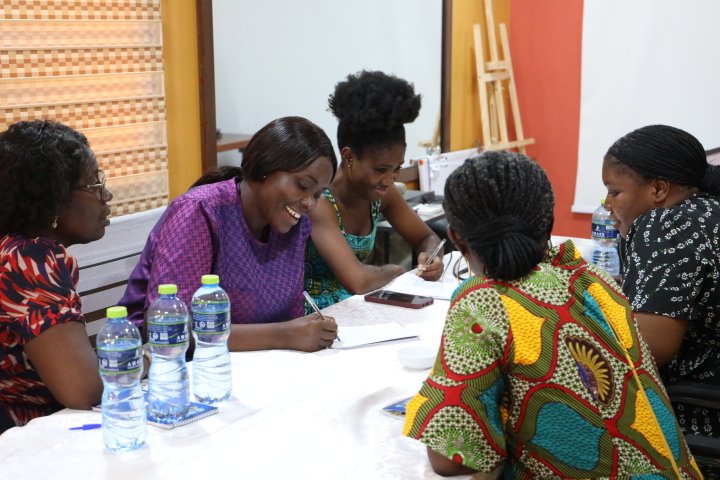
The Greater Accra Resilient and Integrated Development (GARID) project has held a training workshop on disaster risk reduction for women groups within the project intervention areas.
The event, a collaborative effort between the GARID Project and National Disaster Management Organization (NADMO), aimed at empowering women as key stakeholders in disaster preparedness and response strategies. Through interactive sessions, participants were equipped with vital knowledge and practical skills essential for navigating flood events, ensuring safety, and facilitating swift response measures.
In his opening statement at the workshop, the GARID Project Coordinator, Dr. Kwadwo Ohene Sarfoh, emphasized the pivotal role of women in building resilient communities. He remarked, “Empowering women is not just a necessity but a cornerstone of effective disaster risk reduction. Their leadership and knowledge are invaluable assets in safeguarding our communities against the threats of natural disasters.”
The Director for Climate Change Adaptation and Disaster Risk Reduction at the National Disaster Management Organization (NADMO), Ms. Charlotte Norman, expressed gratitude to the GARID Project for its support for the program. “The GARID Project’s dedication to empowering women in disaster risk reduction is commendable. Collaborative efforts like these are instrumental in enhancing our nation’s resilience,” remarked the Director.
Participants at the workshop echoed sentiments of empowerment and determination. Mrs. Ama Serwaa, a participant, expressed her commitment to cascading the acquired knowledge to her community: “This workshop has equipped us with crucial skills and insights to effectively respond to flood events. We are now better prepared to safeguard our communities during disasters,” she noted. “I am committed to sharing these valuable lessons with my fellow women, empowering them to contribute to our collective resilience.”
The grassroots initiative spearheaded by GARID project marks a significant stride towards bolstering resilience and safeguarding vulnerable populations in flood-prone areas. As these empowered women leaders take charge, the ripple effect of their actions promises a brighter, safer future for all.
